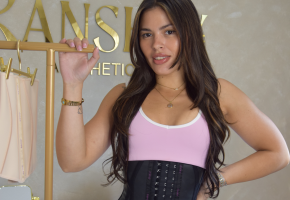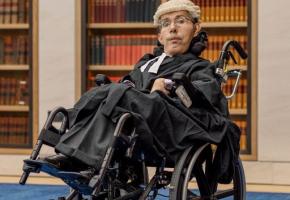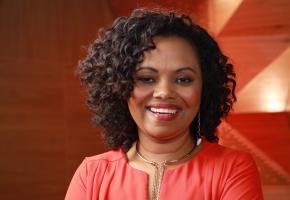Danay and Osvaldo, whom we are unable to show a photo of for obvious reasons (and instead show one of the constant queue at the Dirección de Inmigración y Extranjería where Cubans go for emmigration papers), form just the latest tiny statistics in an accelerating wave of Cubans seeking to leave the island by any method possible. A situation which was already bad before Covid has now been exacerbated by a collapsed economy where almost all foreign income has disappeared. They are relatively fortunate as with Argentinine visas they won’t need to risk their lives on a flimsy homemade boat in the Straits of Florida or being robbed or worse by Central American people smugglers.
In recent months the decision by Nicaragua to allow visa-free entry to Cubans has increased the volume of exits exponentially with short flights to Managua reaching prices of $2-3000 dollars. This past week alone two friends have told me of family members who have left the country this way. One had left only two days earlier and when I asked how he was getting on in Nicaragua my friend said “Oh no, he’s already in Honduras”.
Like many of their generation Danay’s grandparents Pedro and Bertha remain on the surface fiercely loyal to Fidel and the Revolution, maintaining a corner of the dining room proudly adorned with a photo of their children posing with him at an official event. Pedro remains a committed member of the Communist Party, paying a small subscription and attending monthly meetings of a local “nucleo” (branch) related to his profession.
Pedro and Bertha are typical of many their age. Born poor and black in the eastern provinces they came of age as Castro’s revolutionary army marched into Havana. After being caught up in militia service during the campaign against the “bandidos” (the Revolution’s term for counter revolutionary groups which operated during the first years of the revolution) they were both able to gain a university-level education and practise long, respectable careers. Bertha still suffers from a painful shoulder caused by a blow from a counter revolutionary rifle butt during the campaign in the southern Escambray mountains.
They are decent, kind people who have never profited like many others from exploiting official positions within the huge state machine for financial gain via bribes or plain theft, with the result that they are now completely dependent on Pedro’s salary (as he is still officially working in his career as an artist) and Bertha’s small pension, both of which are paid in Cuban pesos. The vast difference between the official exchange rate of 25 Cuban pesos to the dollar and the street rate of over 100 combined with rampant price inflation means it makes more sense to understand their income in terms of purchasing power rather than currency. If they exchanged all both Pedro’s salary and Martha’s pension into hard currency as soon as they received them, they would receive the monthly equivalent of $45 and $16 USD respectively. While they are able to pay utility bills and some basic food products at subsidised local currency prices, the allowed amounts are too small to last long. This means that they often have to resort to the black market to obtain even staples such as eggs, which this week have gone up in price to 600 pesos (more than one third of Bertha’s pension) for a tray of 24. In addition, many products are now only available in the “hard currency-only” stores which accept only magnetic cards topped up inside Cuba by a limited number of foreign currencies in cash, or international transfers. With no relatives to send them funds from abroad, if they want to use these shops the only solution is to buy foreign currency on the black market (the government stopped selling foreign currency last year).
Pedro left the house at 4am on 3 consecutive days this week in order to insert himself in the ever present queues for popular items such as chicken, hoping to bring home something more suitable for a farewell dinner for his granddaughter than mince and beans. On each occasion he returned home after lunchtime empty handed as the daily supply had run out before his turn came up. Finally Bertha managed through a contact in the barrio to buy a plump and enticing whole chicken.
As periodic and sometimes heated family debates break out in front of the nightly television news even these stalwart supporters of the system are noticeably less energetic these days in supporting the government’s insistence on blaming almost the entire economic situation on the US Blockade. The impact on their daily lives of the failings of the country’s internal management, particularly in producing enough food for internal consumption, is too strong to be ignored, even by them. Up to 80% of Cuba’s food is imported not only from countries with historical links such as Vietnam but also in increasing quantities from the USA, a fact which is not excessively publicised by either government.
As a result Pedro and Bertha and many like them remain in a contradictory internal state, conscious of the deficiencies of the centralised economy but unable to admit even to themselves that a system they have defended so faithfully for over 60 years may in fact never come good, despite claims of the country’s leaders.
In no country is the saying “blood is thicker than water” more applicable than in Cuba so despite their own grief they fully support Danay’s decision to seek a better future in a place which Cubans tellingly tend to refer to not as “el extranjero” (abroad) but “el mundo” (the World) as if Cuba were somehow part of another planetary dimension which it can indeed sometimes seem to be.
Danay and Osvaldo normally live elsewhere but they have now come to spend their last days here to maximise time with the elders and have temporarily moved into the bedroom of Danay’s aunt where the bed now supports a sprawl of items to take to their new life, half of which would exceed their 23kg luggage allowance and will have to be left behind. To save money they have purchased only one of the flight tickets with hold luggage included. They own few clothes worth taking to Argentina where in any event the climate is quite different to that of Havana.
Danay has visited her father once before and has done the lion’s share of the paperwork required for the trip. For Osvaldo it will be his first foreign experience and it’s hard for him to imagine a different reality to the Cuban one where he has to queue for everything and any tool he might require for his trade as a mechanic could be obtained only with the greatest difficulty and sacrifice.
Fortunately last night he came to me for advice about how best to pack for travel the few tools he hasn’t had to sell to pay for the flight, so I’m able to warn him that under no circumstance should he take anything suggesting he will look for work or he could automatically be denied entry to Argentina. He is profusely grateful for the advice but soon they face another challenge when they discover that the large suitcase donated for the trip has totally fallen apart. A wheel has fallen off and the only handle is broken beyond repair. Fortunately their aunt finds another case which is old and smells awful after being stored for years in humid Havana, but after a thorough scrub looks like it has a fair chance of surviving the one-way journey which will be its last mission.
Now that the final task of weighing the bags could commence it immediately becomes obvious that much needs to be removed. The most obvious item is Osvaldo’s “Elegua” a representation of the Yoruba deity of the same name who is widely revered in Cuba, representing the beginning and end of things, crossroads and pathways. Many Cuban households and individuals keep a little representation of Elegua at home to bring luck and protection, even if they are not particularly active in Yoruba Santeria. Eleguas are usually constructed from a combination of concrete, stones, shells, necklaces and other symbols prescribed by the religion for the individual(s) concerned. Some can be quite small but Osvaldo’s is large and weighs a couple of kilos. Eleguas are often taken on journeys but in the event of them being too heavy a kind of “travel version” can be obtained following certain procedures. However, Osvaldo is out of time so the Elegua has to stay home.
Grandparents Pedro and Bertha are being very brave about the situation but despite all the family’s efforts at jollity a sombre mood hangs over the house. Tomorrow the travelling couple will be taken to the airport by a friend so early that they will arrive some 4 hours before check-in starts in order to have time for what are sometimes long queues to enter the terminal because of the all the documentation needing to be shown in Covid times. This presents another obstacle, that once they do pass security they will be unable to buy any food or drink as the Cuban government recently announced that only some foreign currencies in cash or credit cards will be accepted airside. Having spent any last penny they have on the flight, Danay and Osvaldo have nothing left so Bertha says she will make sandwiches to keep them going.
With the luggage finally packed attention turns to dinner preparations. I examine the chicken which is defrosting in the kitchen, curious to know its origin because it’s so much larger than the Syrian ones we have eaten lately.
In a final irony which won’t be lost on Pedro and Bertha I see the label reads “Product of the U.SA.”















